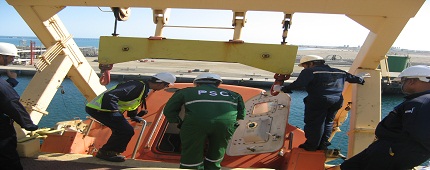Sovereign and other self-governing States have the right to control any activities within their own borders, including those of the visiting ships. Control of port State, over the foreign flag ships in their ports, for verifying compliance with the requirements of the international maritime conventions, on the basis of the above philosophy, is called port State control (PSC).
PSC comes into the scene when ship owners, ship managers, classification societies and flag State administrations have failed to comply with the requirements of the international maritime conventions. Although it is well understood that the ultimate responsibility for implementing conventions is left to the flag States, port States are entitled to control foreign ships visiting their own ports to ensure that any deficiency, including that concerning living condition and safety of ship staff, found are rectified before they are allowed to sail. Port State control is regarded as measures complementary to the flag State control.
In recent years, a few shipping disasters, causing alarming damage to the environment, made the whole world concerned about protection of their coastal water. The European Memorandum on port State control, popularly known as Paris MOU, is the result of this concern. Subsequently, the following Memoranda of Understanding on port State control concluded to this date. The International Maritime Organization(IMO) played major role in formulation of these MOUs.
- Paris MOU (Europe and North Atlantic region)
- Latin American MOU (Latin American region)
- Asia-Pacific MOU (Asia-Pacific region)
- Caribbean MOU (Caribbean region)
- Mediterranean MOU (Mediterranean region)
- Indian Ocean MOU (Indian Ocean region)
- West and Central African MOU (West and Central African region)
- Black Sea MOU (Black Sea region)
- Riyadh MOU (The Gulf region)
USCG, though not a signatory to any of the MOUs, carries out port State control for compliance with the US Code of Federal Regulations and other International Maritime Conventions.



